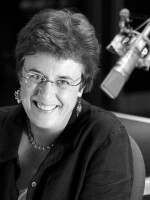Violinist Mark O'Connor hasn't had much time to fiddle around lately. His choral work "Folk Mass" made its debut at New York City's St. Thomas Church Feb. 4. And his Hot Swing Trio has a new jazz album out, with a boost from Wynton Marsalis on trumpet and Jane Monheit on vocals.
But O'Connor is used to a busy schedule. From his days as one of Nashville's favorite fiddle players to his stint with the rock band The Dixie Dregs to albums of original orchestral composition, O'Connor has made a mark on approximately 500 recordings. He recently spoke with NPR's Liane Hansen about his musical philosophies, his multi-hued career and the Hot Swing Trio's new CD, In Full Swing.
O'Connor was just 17 when he began touring with the legendary jazz violinist Stephane Grappelli in the late '70s. His initial audition was on guitar, but soon he was playing violin duets with Grappelli. A quarter-century later the influence of the late violinist is still obvious in O'Connor's music.
That influence extends to the Hot Swing Trio's bassist, Jon Burr, who played with Grappelli for 10 years. Burr and O'Connor met at a tribute concert to their mentor. O'Connor says the songs on In Full Swing are from the "repertoire that Stephane loved."
But to O'Connor, the CD is an attempt to express his own philosophy of playing: "...Take something that has traditional leanings, some fabric from an older era and blend it with a new idea."
The blend features "a strong connection to folk music with jazz," O'Connor says. "Feelings of the southern United States, somewhere between New Orleans and Appalachia."
Somewhere between New Orleans and Appalachia is Nashville, where O'Connor set up shop in the 1980s. His fiddle work can be heard on the Trio album by Dolly Parton, Linda Ronstadt and Emmylou Harris, and on recordings by country stars Randy Travis, Clint Black and Ricky Van Shelton. After Nashville, O'Connor's career expanded to classical music, where he has recorded previously with Marsalis in that genre, and with the great cellist Yo Yo Ma.
O'Connor calls the violin "a flexible instrument" and says his own evolution is an attempt to "invent a way to play that's really neither folk or classical or jazz, but... lends itself well to these different genres."
Copyright 2022 NPR. To see more, visit https://www.npr.org.





